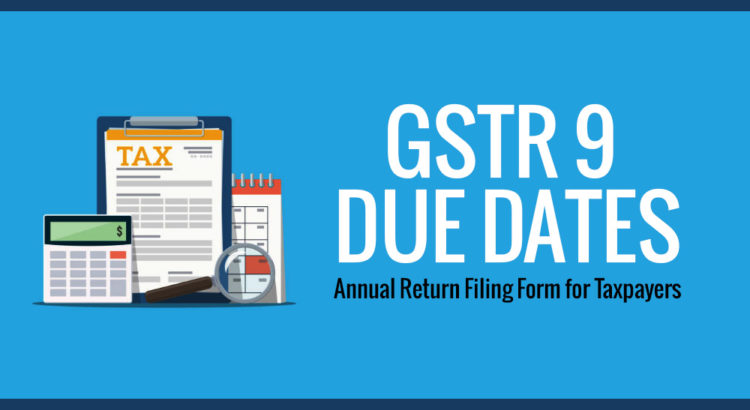GST is a complex business. That is why most people prefer to consult GST consultants, rather than doing the taxes on their own. One of the much talked about tax return is GSTR-9.
It is an annual return to be filed by taxpayer registered under GST. The form is a compilation of all business transactions of a financial year. The same includes all details pertaining to supplies and receivables under different tax heads i.e. CGST, SGST & IGST and HSN codes. The information furnished in monthly and quarterly returns is compiled in GSTR-9.
Who must file GSTR-9?
All taxpayer registered under GST needs to file the
GSTR-9.
Who are not required to file form GSTR-9?
Here is a list of people who are excluded from mandatory filing of GSTR-9:
- Input service distributors
- Tax Deductors
- Composition dealers
- Tax Collectors
- Casual taxable people of India
- Non Resident taxable people of India
Different types of GSTR-9
- GSTR-9 – This is the annual return to be filed by registered taxpayer under GST.
- GSTR -9A – This annual return is for people registered under the composition scheme. To know more about composition scheme, contact GST consultants right away.
- GSTR -9B – GSTR – 9B is the annual return for e-commerce website operators who are required to file GSTR-8.
- GSTR – 9C – This is a reconciliation form for taxpayer that have a turnover of more than 2 crores. The form must be certified by a recognized CA.
GSTR-9 Due date, late fee and penalty charges
The due date for filing GSTR-9 is 31st December for every financial year. For FY 2017-18 due date is further extended to November 30, 2019. If the same is not filed on due date, a late fee of INR 100 per day. It is to be noted that the late fee will be charged for both SGST and CGST separately. This implies that a total late fee of INR 200 per day will be charged.
Format of GSTR 9
Below are the components of GSTR-9 form briefly explained:
- Part 1: This part is for details of tax payer and is auto filled.
- Part 2: Contains the details of inward and outward supplies, as declared in financial year. These details are picked up by consolidating from all GST returns filed in FY. Sounds confusing? Let our GST consultants in Delhi help you out!
- Part 3: It consists of details of ITC as declared in returns filed during the financial year.
- Par 4: This includes information of taxes paid as declared in the returns filed during FY.
- Part 5: Particulars of the transactions for the previous FY declared in returns of April to September of current FY or up to date of filing of annual return of previous FY whichever is earlier
- Part 6: This section involves demand refunds of GST, payment of late fees, tax details of HSN code.
In conclusion, GST is a complex tax system, and many individuals and businesses prefer to consult GST consultants for accurate filing. One crucial tax return is GSTR-9, an annual return that compiles all business transactions. It is mandatory for all GST-registered taxpayers, except for specific categories. GSTR-9 has different types, including GSTR-9A for composition scheme registrants and GSTR-9C for taxpayers with a turnover over 2 crores, requiring certification by a CA. The due date for filing GSTR-9 is 31st December, with late fees of INR 100 per day for SGST and CGST. Understanding the format and components of GSTR-9 can be simplified with the assistance of GST consultants.
"Simplify your GSTR-9 filing and ensure compliance with the help of our expert GST consultants. Contact us today!" at
info@manishanilgupta.com
Disclaimer: The information given in this article is for general guidance to the readers. This information should not be sought as a substitute for legal opinion


0 Comment